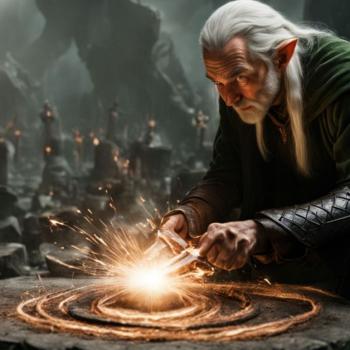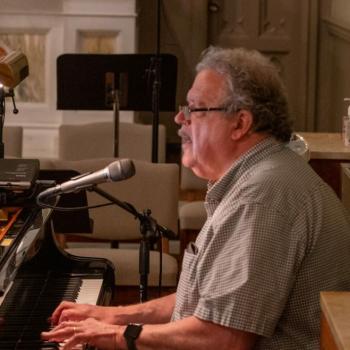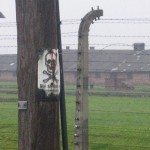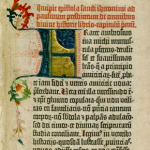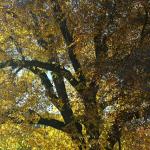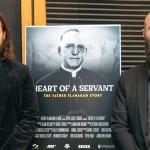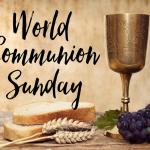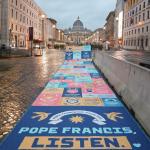Dissertation writing is a long process of accumulating knowledge, scrapping it, finding surprising connections, resurrecting what seemed to be dead ends, and then miraculously stumbling upon an insight that weaves as much as possible of the previous research into an intelligible pattern. I wouldn’t recommend it for the sane.
Nearly all my intellectual interests are dictated by a chance encounter with one poem by Czeslaw Milosz in a high school anthology of American poetry. All these year later I’ve earned degrees in history, comparative religion, and comparative literature pretty much trying to figure out what’s going on in his poems and why they’ve captured my imagination. I’ve finally reached the point where I see a pattern I can write about without end.
Idle curiosity led me to rummage around Amazon to see whether there is anything new going on in Milosz studies. The nine years since his death have been surprisingly fallow for scholars. Maybe they’re also having some of the same issues as myself?
Sometimes I wonder whether Milosz was so controlling about interpreting his poetry through his essay collections (such as Native Realm, Visions from San Francisco Bay, Land of Ulro, and Beginning With My Streets) that he didn’t bother to cultivate a generation of Miloszologists.
For a while there were rumors of a Clare Cavanaugh biography of Milosz, but the project seems to be on hold. A few studies of Milosz’s poetry do exist English (Poet’s Work, The Eternal Moment, Fellowship of Poets, and, actually, that’s it besides scattered essay collections). The Polish output is about three or four times that–not much for a poet of such stature.
This was the state of things until I ran across the work Irresolute Heresiarch. To my eyes the publisher’s description suggests the book is on the right track:
“In the midst of a multi-national comparative study of modern Catholic poets, Charles S. Kraszewski was more than a little surprised at the difficulty he encountered in finding a representative poet from that ostensibly most Catholic of European nations, Poland. With but two guiding criteria in mind the poet had to be possessed of a Catholic world view and have a significant impact on the development of modern poetry it seemed that Polish poets were either very good . . . or Catholic. Then, in 2004, during the funeral of the Nobel Prize winning poet Czeslaw Milosz, it was revealed that the poet had written a recent letter to the Pope, declaring his intent, in his later writings, to express a Catholic viewpoint. This was a surprising admission, given the rather heterodox reputation that characterized the poet during his long lifetime. Irresolute Heresiarch: Catholicism, Gnosticism and Paganism in the Poetry of Czeslaw Milosz is the fruit of Kraszewski’s research into the religious themes expressed in the poetry of the great bard.”
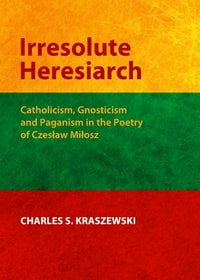
I’m pretty much on board with all this. I am looking forward to reading the book, because I wonder whether Kraszewski comes to the same conclusion as I do: Milosz was a cafetria Manichean and cafeteria Pagan who used those traditions, as Catholics have for ages, in service of a Catholic imagination.
It’s affirming to see someone else has been mining some of the same territories as I have in my dissertation. It means I’m not entirely a madman for following what Milosz says about Catholicism in his writings. It’s also a little frightening, because there is always the danger that someone else has written your dissertation already! I frantically searched through Kraszewski’s book and found no traces of Andrew Greeley and David Tracy, plus only a few mentions of the imagination and the liturgy. These are the main hubs of my analysis, which should be completed sometime early next year. Phew.
By the way, if you’re still suffering from a Milosz deficit the video at the top of this post is the trailer for a recently released documentary of the poet entitled The Age of Czeslaw Milosz. The trailer starts out by addressing the state of the religious imagination as Milosz did in Roadside Dog (and pretty much everything else he wrote), which means they’re probably onto the right path (I’ll see, the DVD is in the mail):
“Instead of leaving to theologians their worries, I have constantly meditated on religion [in my poetry]. Why? Simply because someone had to do this [in literature or otherwise]… I lived in a time when a huge change in the contents of the human imagination was occurring. In my lifetime Heaven and Hell disappeared, the belief in life after death was considerably weakened [and so on]… After two thousand years in which a huge edifice of creeds and dogmas has been erected, from Origen and Saint Augustine to Thomas Aquinas and Cardinal Newman, when every work of the human mind and of human hands was created within a system of reference, the age of homelessness has dawned. How could I not think of this?”
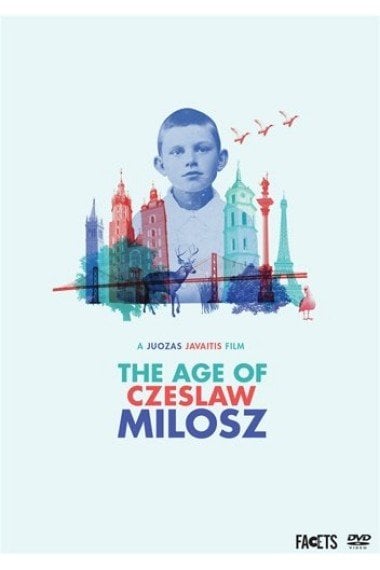
I don’t want to leave you with a sense of despair, so here’s how Czeslaw Milosz imagined the Catholic imagination in Visions From San Francisco Bay:
“There is the warm, human presence of a God who took on flesh in order to experience our hunger and our pain, so we would not be doomed to strain our eyes upward but could be nourished by words spoken by lips like our own. And the God-man is not one of us in our moments of pride and glory but one of us in misfortune, in slavery, and in the fear of death. The hour when he agreed to accept suffering conquers time; centuries of change and passing civilizations are insignificant and short-lived, and no wasteland of cement, glass, and metal will make man different from those men Christ addressed in Galilee…
Catholicism is the most anthropocentric of religions and, in some sense, through its own excess of divine humanity, it resists the exact sciences which annihilate the individual. Thus, paradoxically, it is less susceptible than other religions to the disintegrative influence of science and technology. In Catholicism, even Heaven and Earth, the Descent and the Ascension of God are not like relations between worlds but like those between human forms.”




